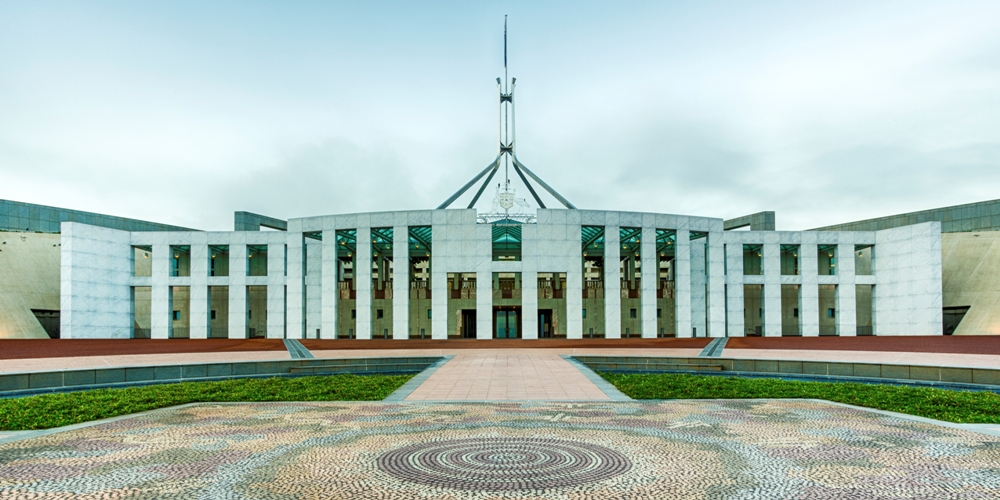 The 1975 dismissal of Prime Minister Gough Whitlam had been called Australia's 'ugly coup'.
The 1975 dismissal of Prime Minister Gough Whitlam had been called Australia's 'ugly coup'.
Another constitutional crisis emerged from the mists of 40 years ago as a new book revealed long-hidden facts about what the commentator David Marr, writing for Guardian Australia last year, called Australia’s ‘ugly coup’—the highly controversial dismissal of the Labor prime minister, Gough Whitlam, in 1975 by the governor-general, Sir John Kerr.
In The Dismissal Dossier: Everything You Were Never Meant to Know About November 1975, Professor Jenny Hocking says Kerr had regular contact with, and the implied consent of, the Queen in the run-up to the dismissal and was in secret discussions with the Liberal Party leader, Sir Malcolm Fraser—the man he named to replace Whitlam.
The events of 1975 are still seen as Australia’s greatest modern political crisis. It was prompted by the election, after 23 years of rule by a Liberal-Country coalition, of a Labor government. Whitlam’s 1972 election campaign, with the slogan ‘It’s Time’, seemed to sum up the polarising choice of an exciting politician whose policies seemed in tune with a period of rapid change, as issues such as Aboriginal rights, the Vietnam war and divorce laws came to the fore. Ranged against him was a largely reactionary rural electorate and a conservative political establishment that looked back to the ‘mother country’ as its model—and, it has emerged, for support of dubious legality from what was supposedly merely the ‘dignified’ part of the British government, in the words of Walter Bagehot.
Hocking argues that far from Kerr acting alone, the British monarchy knew exactly what was happening, though this was denied at the time by Buckingham Palace. She said Kerr’s private papers clearly showed that the palace knew Kerr was considering the dismissal months before it happened. She also claims that Kerr suggested Prince Charles could be a future governor-general.
A distinguished Australian scholar at Monash University and biographer of Gough Whitlam, Hocking says the governor-general had discussed his dismissal of the prime minister far in advance with the Queen; her private secretary, Sir Martin Charteris; Australia’s chief justice, Sir Garfield Barwick, and the opposition leader Fraser.
Her findings are based on Kerr’s private papers and a previously unpublished interview between Kerr and Fraser from 1995 held by the West Australian Liberal senator Reg Withers and embargoed until his death. The Sydney Morning Herald quoted Hocking as saying: ‘Withers reveals that not only had Kerr decided to act against Whitlam in the week before 11 November 1975, but that both he and Fraser knew this. Withers confirms that the governor-general and the leader of the opposition were in secret telephone contact, using their secure private numbers.’
The book also overturns another foundation of the dismissal: that Whitlam’s replacement by Fraser was necessary to ensure ‘supply’—the very funding of government, which had been blocked by Australia’s upper house in a way that had been illegal in Britain since 1911. ‘It now appears that the very basis of Whitlam’s dismissal, and Fraser’s appointment, as prime minister – the need to secure supply – was a constitutional and political charade,’ Hocking said. ‘In this previously unpublished interview, Fraser makes the extraordinary claim that the provision of supply was not in fact a condition of his appointment as prime minister at all.’
Kerr had feared that he would be dismissed by Whitlam. According to Hocking, ‘Charteris told him that should this “contingency” occur, the Queen would “try to delay things” for as long as possible although Charteris acknowledged “in the end the Queen would have to act on the advice of her prime minister”.’
Marr said that the events of 1975 ‘revealed the lengths to which politicians who call themselves conservative will go in the pursuit of power … There was no justification for the sacking of Whitlam. The many mistakes of his government were not for the governor-general to correct. The electorate would do that in good time.’
Although The Age said on the 30th anniversary of the tumultuous events that ridicule had replaced rage—quoting the former prime minister Paul Keating, one of Whitlam’s junior ministers in 1975, calling Kerr a ‘pumped-up bunyip potentate’—Whitlam was unforgiving, believing that the ‘constitution was subverted’.
The former prime minister told ABC that he had never spoken to Kerr again after his dismissal and ‘no figure that I respected ever spoke to Kerr again.’ He called Kerr ‘a contemptible person’ who had deserved to be hounded. He admitted, however, that his views had converged with those of his old adversary Fraser, whom he once derided as ‘Kerr’s cur’.
Perhaps referring to Tony Abbott, then prime minister and one of Kerr’s few admirers in Australian politics, Marr wrote: ‘One side of politics will still not disown what he did and oppose any attempt to be rid of the ancient and contested powers of the governor-general, which remain, in ruthless hands, ready to wreak havoc on Australian democracy.



